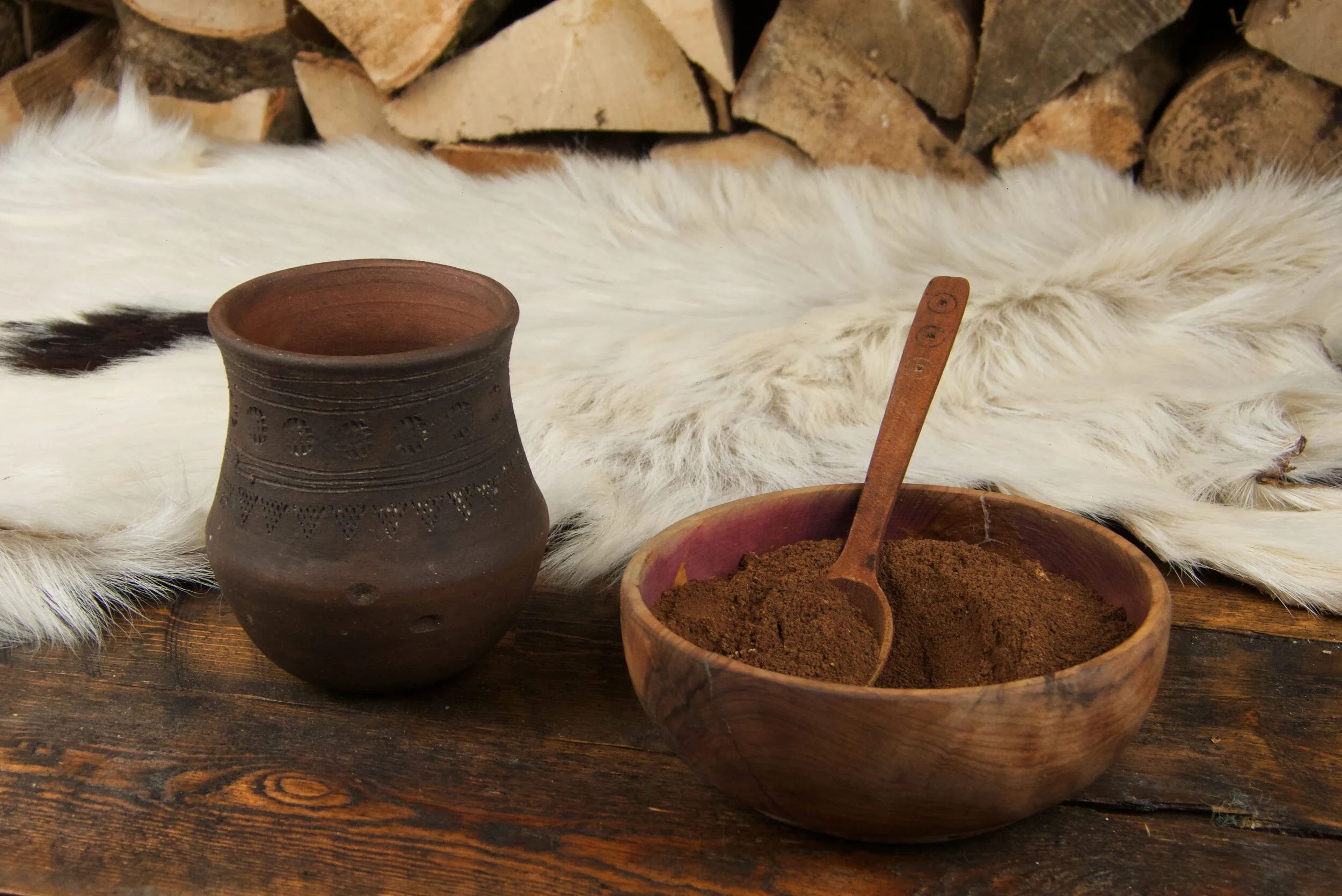Ingredients:
For the spice mix;
2 1/2 tablespoons ground cinnamon
2 teaspoon ground cloves
1/2 teaspoon ground allspice
1/2 teaspoon ground coriander
1/2 teaspoon ground green cardamom
1/2 teaspoon ground ginger
1/2 teaspoon ground star anise
1/4 teaspoon ground mace
1/4 teaspoon ground nutmeg
For the gingerbread;
180g butter
80g brown sugar
100g golden syrup
300g Plain flour
25g ground almonds
3 tablespoons of spice mix - see above
1/2 tsp bicarbonate of soda
1/2 tsp white pepper
2 eggs
500g icing sugar
Method:
Mix all the spices together well.
Heat the butter, brown sugar and syrup in a large pan, on a medium heat, until fully dissolved and mixed together. Leave to cool for 5 minutes.
Meanwhile mix the plain flour, ground almonds, spice mix, bicarbonate of soda and white pepper in a bowl.
Add to the saucepan of melted sugar and fat and mix well. Stir in the eggs.
Tip the mixture out onto a piece of cling film and wrap tightly. Refrigerate for several hours, or ideally overnight.
Split the mix into 2 halves and roll both out into 3/4" sausages and cut each sausage into pieces 3/4" thick. Roll each piece into a ball and place onto a lined baking tray, leaving a gap between each one. You should end up with around 24 balls.
Cook in a preheated oven at 180 degrees Celcius for around 10-15 minutes, until golden in colour.
Remove from the oven and leave to cool. Once cooled, mix up the icing sugar as per the packet instructions. Dip each biscuit into the icing sugar, and place onto a cooling rack. Leave until the icing has set.






